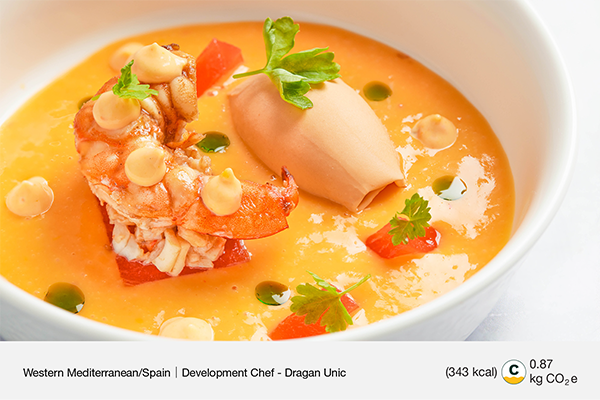#Sustainability20: Archer Approved For Commercial eVTOL Operations By FAA & More
Weekly Roundup - 07/06/24
Each Friday, we publish a round-up of the 20 most important stories on sustainable aviation. You can see previous editions of #Sustainability20 here.
Industry Updates
Turkish Airlines has launched its 'Tomorrow On-Board' sustainability brand, showcasing sustainable in-flight products to enhance its brand image, communicate sustainability activities, and involve passengers in initiatives.
Airlines and energy firms clashed over the scarce availability of alternative fuels at the IATA summit, with the IATA Director General calling for more investment in sustainable aviation fuel (SAF) development.
Cathay and Singapore Airlines will jointly advocate for greater SAF use in the Asia-Pacific region and exchange best practices to reduce single-use plastics, minimise waste, and improve energy efficiency.
Airline catering company LSG Group has partnered with food sustainability solution Klimato to introduce menu labels that provide transparent information about the climate impact of meal choices.
IATA's Director General said there was no need to reduce aviation growth to meet the industry's net zero emissions target by 2050, but costs would be passed on to passengers.
CLIMATE WATCH: News and tech media mostly quiet after UN chief calls for ban on ads for oil and gas - The Guardian
Major news and tech media remained largely silent after the UN Secretary General called for a ban on fossil fuel advertising, with only two out of 11 organisations commenting.
Infrastructure and operational efficiencies
SEKISUI KYDEX developed a recycled grade custom colour for Thompson Aero Seating using at least 50% recycled material, which was showcased at the Aircraft Interiors Expo.
STG Aerospace developed a bio-additive for its saf-Tglo eco E1 photo-luminescent products, allowing the polycarbonate to biodegrade even if sent to a landfill.
Rampmaster delivered the first zero-emission all-electric jet refueller truck in the US to Signature Aviation's Vail location, supporting the aviation industry's commitment to net-zero carbon emissions by 2050.
Coinciding with World Environment Day, Kempegowda International Airport Bengaluru introduced a new fleet of electric vehicle airport taxis in collaboration with Refex eVeelz.
Sustainable Aviation Fuel (SAF)
In-flight measurements from an A350 using 100% SAF showed a significant reduction in soot particle emissions and contrail ice crystals, with an estimated 26% reduction in contrails' climate impact.
IATA is launching a SAF Registry to improve reporting of emissions reductions gained by using the fuel across its supply chain.
According to IATA's latest estimate, SAF production is expected to triple this year, reaching approximately 500 million gallons, but will still only account for 0.5% of the aviation industry's fuel needs.
SkyNRG launched Project Runway, a book and claim initiative enabling companies and airlines to address carbon footprints by accessing SAF, with Microsoft joining as the founding corporate member.
New technology: Electric and Hydrogen
Archer Aviation received a Part 135 certificate from the FAA, allowing it to begin operating as a commercial airline and refining its systems ahead of the Midnight eVTOL's launch.
Fokker Next Gen will develop an aircraft designed to run on both liquid hydrogen combustion and SAF, with a capacity of 120-150 passengers and a 2,590km range.
Sirius Aviation plans to create two models of zero-emission, hydrogen-powered VTOL jets, the Sirius Business Jet and Sirius Millennium, slated for a maiden flight in 2025.
Textron eAviation's full-scale technology demonstrator for the Nexus eVTOL aircraft is taking shape, with the fuselage assembly completed and flight testing planned for 2025.
Joby has acquired Xwing's autonomy division, which develops the Superpilot system for unmanned flight. The system uses AI and machine learning for autonomous takeoff, landing, and detect-and-avoid capabilities.
Beta Technologies marked a milestone with the first complete manoeuvre of its Alia eVTOL prototype aircraft, designed to combine the convenience of vertical takeoff and landing with the distance capabilities of a traditional plane.
Helios Horizon claims to have broken the record for the highest-flying multi-seat electric aircraft, reaching altitudes of 17,500ft to 24,000ft. The company aims to enter the stratosphere by late 2025 or early 2026.







